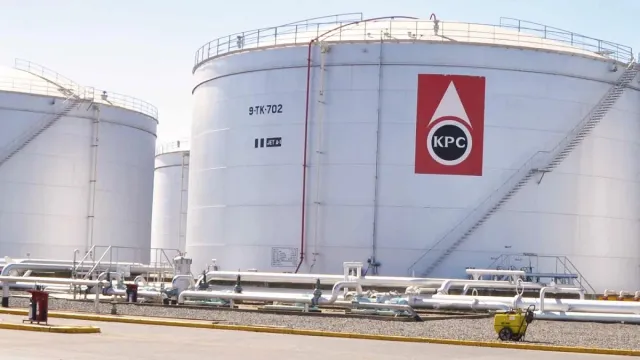Oil spill costs Kenya Pipeline Sh3Bn in hard-won justice

Via consolidated petitions No.8, No.9 & No.12 of 2019, Muindi Kimeu and others sued KPC and NEMA for the leakage that occurred on May 12th, 2015, while transporting petroleum products roughly 50 metres from the source of Thange River, in Makueni County.
Kenya Pipeline Company (KPC) has been ordered to pay a total of KES3 billion as compensation for oil spillage and environmental pollution caused by leakage in its pipeline around Thange River, Makueni County, about ten years ago.
In a ruling delivered on July 11, 2025, KPC was given 120 days to undertake restoration of the damaged land, soil, surface and underground water along Thange River basin where the spillage occurred.
In the case where the National Environment Management Authority (NEMA) was also held liable as a secondary polluter, KPC is expected to suffer a total of KES3,018,831,676 in damages, the judges Christine Ochieng, Theresa Murigi, and Annet Nyukuri noted.
"The duty on the owners of an oil pipeline should be to maintain and repair its pipelines and ensure that petroleum being transported through the said pipelines, does not escape or cause risk to human lives and the environment," the judges noted.
Court documents show that KPC will pay KES2,118,831,676 in direct damages. Additionally, the company will shoulder another KES900,000,000 bill, which it was directed to pay NEMA for champion environmental restoration in the affected area, if the parastatal does not undertake the restoration work itself.
According to court document, the KES2.1 billion payout covers a wide range of damages, including KES28 million for the loss of domestic water and KES553.5 million in general damages for the violation of the communities’ constitutional rights.
Additionally, KES23.5 million was awarded for the loss of income due to land use, crops, and fruits, while KES225 million will compensate for livestock losses suffered by residents.
The judgment further provides KES198.15 million for future medical treatment of affected individuals and KES 815.15 million for pain, suffering, and loss of amenities.
For the loss of expectation of life for 15 victims, the court awarded KES2.25 million, alongside KES 5 million to cover the cost of drilling a borehole, KES6.9 million for laboratory testing, and KES11.2 million in professional fees for livestock assessment.
The ruling also includes KES250 million in punitive damages, underscoring the severity of the company’s negligence and its lasting impact on the community and environment.
Via consolidated petitions No.8, No.9 & No.12 of 2019, Muindi Kimeu and others sued KPC and NEMA for the leakage that occurred on May 12th, 2015, while transporting petroleum products roughly 50 metres from the source of Thange River, in Makueni County.
The spillage polluted dozens of villages along Thange River basin at some point causing public outcry and demonstrations along Nairobi - Mombasa Highway with residents decrying lack of Government response on the situation.
The petitioners argued that huge amounts of petroleum products had spilled from KPC's pipeline for unknown period of time, seeping deep into the affected area's soil and water sources, thereby spreading and negatively affecting their livelihoods.
Christine Mueni Musa, a petitioner argued that from 2018, her husband suffered from cancer and eventually died. "She claimed to be sickly as were some of her family members. She believed that the ailments affecting her family members were as a result of the pollution of the Thange River," the judgement states in part.
In the suit, KPC was accused of failing to maintain and keep the pipeline transporting petroleum in good working condition as well as failing to detect in time that their oil transport infrastructure was damaged.
Additionally, KPC "failed to install proper and/or working early leak detection and safeguard system," they argued, adding that the parastatal also, "failed to provide enough personnel and financial resources for monitoring the safety of the leaked pipeline."
Through the spillage, the suit noted that Kenya's petroleum supplier failed to meet the "constitutional expectation" to "observe, conserve, respect, protect the right to a clean and healthy environment guaranteed and protected under Articles 42, 69 (2) and 70 of the Constitution."
Section 97 of the Petroleum Act provides that entities engaged in petroleum business shall comply with the applicable environmental, health and safety laws.
"In the event of a fire, explosion, oil spill, injury or fatality occurring in the course of operating a petroleum logistics facility, transportation or sale of petroleum, either by accident or through negligence, the operator or person transporting or selling the petroleum shall forthwith clean up the polluted or damaged environment, at the operator's own expense, to the satisfaction of the licensing authority and any other relevant authority," the law states.




